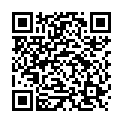|
|
|
| Module code: MST101 |
|
6V (6 hours per week) |
|
7 |
| Semester: 1 |
| Mandatory course: yes |
Language of instruction:
German |
Assessment:
Written exam, project work
[updated 22.07.2012]
|
MST101 Mechatronics and Sensor Technology, Bachelor, ASPO 01.10.2005
, semester 1, mandatory course
|
90 class hours (= 67.5 clock hours) over a 15-week period.
The total student study time is 210 hours (equivalent to 7 ECTS credits).
There are therefore 142.5 hours available for class preparation and follow-up work and exam preparation.
|
Recommended prerequisites (modules):
None.
|
Recommended as prerequisite for:
MST301 Vibrations and Waves
MST402 Physics Lab Course
MST408 Microfabrication
MST504 Optical Sensors
[updated 06.08.2012]
|
Module coordinator:
Prof. Dr. Bernd Schurich |
Lecturer:
Prof. Dr. Martin Löffler-Mang
Prof. Dr. Bernd Schurich
[updated 22.07.2012]
|
Learning outcomes:
Students will be expected to actively acquire an understanding of the topics covered in this course. After completing the course, they will have a firm command of the fundamentals and be able to apply them.
The course aims to:
- introduce students to the systematic structure and methods of physics,
- extend student understanding of the fundamentals of the subjects covered,and
- teach students the basic tools of physics.
[updated 22.07.2012]
|
Module content:
- Physical units; graphical representation of data; error analysis; motion in one dimension; motion in two and three dimensions; Newton’s axioms; works; energy; power; momentum; rotational motion; gravitation; gravitational fields
- The electric field; electric potential; motion of charges; electric current; electrical resistance; Ohm’s law; dc circuits; Kirchhoff’s laws
- The nature of light; light sources; light detectors; reflection and refraction; imaging with mirrors; imaging with lenses; optical systems
[updated 22.07.2012]
|
Teaching methods/Media:
Lectures, group work
[updated 22.07.2012]
|
Recommended or required reading:
Sexl, Raab, Streeruwitz: Einführung in die Physik
Paul A. Tipler: Physik
Lecture notes, articles etc.
[updated 22.07.2012]
|


